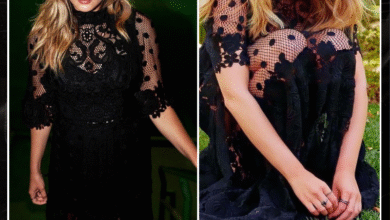The Secret Marilyn Monroe Never Told: Her Deepest Wishes About Becoming a Mother Revealed
OPINION: This article may contain commentary which reflects the author's opinion.
Marilyn Monroe, the iconic Hollywood star whose life has been the subject of fascination for decades, remains a figure both revered and misunderstood. Known for her cinematic achievements, Monroe’s personal life, particularly her struggles with relationships, mental health, and substance abuse, is often overshadowed by her public persona. One of the more poignant and lesser-discussed aspects of her life is her desire to become a mother—a dream that, tragically, she was never able to fulfill. This article delves into the question of Monroe’s thoughts on motherhood, based on available biographical data, personal writings, and the insights of those who knew her.
A Troubled Beginning and its Impact on Motherhood
Born Norma Jeane Mortenson on June 1, 1926, Monroe’s early life was marked by abandonment and instability. Her mother, Gladys Baker, suffered from paranoid schizophrenia and was institutionalized when Monroe was young, leaving her to spend much of her childhood in foster care. This early separation from her biological mother, combined with an often tumultuous relationship with maternal figures, likely shaped Monroe’s views on motherhood and family.
Monroe’s formative years were spent navigating a world devoid of maternal security. These early life experiences undoubtedly played a significant role in the actress’s longing for stability and the desire to build her own family later in life. However, while her personal longing for motherhood is widely acknowledged, direct statements or public expressions from Monroe herself regarding her aspirations to become a mother remain scarce.
Evidence of Pregnancies and Maternal Aspirations
Despite the lack of direct, documented statements from Monroe about wanting to be a mother, evidence of her pregnancies suggests that she did, indeed, desire to have children. Throughout her life, Monroe experienced at least three pregnancies, none of which resulted in a live birth. According to a 2022 article from Women’s Health Magazine, “Marilyn loved children and she was desperate to be a mother. Sadly, she never carried a baby to term.” This interpretation, while not a direct quote from Monroe, reflects the understanding of her biographers and those close to her, who recognized her emotional longing for motherhood.
Further insights into her desire to be a mother come from the 2022 CNN series Reframed: Marilyn Monroe. Actress Mira Sorvino, reflecting on Monroe’s life, commented, “She wanted to be a mom. I think she wanted to love a baby.” While this statement highlights a sentiment shared by many who have analyzed Monroe’s life, it remains an inference rather than a firsthand account from Monroe herself.
Monroe’s Personal Writings: Glimpses Into Her Inner World
Monroe’s personal writings, compiled in Fragments: Poems, Intimate Notes, Letters (2010), offer a rare glimpse into her inner world. In these letters, poems, and notes to herself, Monroe reflects on many aspects of her personal life, but there is little direct reference to her desire to become a mother. However, the yearning for emotional stability and the deep sense of longing for unconditional love that permeates her writing suggests that motherhood may have been part of her unspoken dream.
In a 1962 interview with Richard Meryman for Life magazine, Monroe spoke openly about her struggles with personal relationships and her sense of loneliness, but again, there was no explicit mention of her desire for children. This absence of direct statements is one of the challenges in understanding Monroe’s true feelings on motherhood—much of what is known comes from second-hand interpretations, rather than her own voice.
Fiction vs. Fact: The Challenge of Depicting Monroe’s Personal Life
Monroe’s life, with all its complexities, has inspired countless books, documentaries, and fictionalized portrayals. One such depiction is the 2022 film Blonde, based on Joyce Carol Oates’ novel, which dramatizes Monroe’s pregnancies and abortions. While the film paints a picture of Monroe’s tragic attempts at motherhood, it should be noted that these portrayals are fictionalized, lacking concrete historical evidence or direct quotes from Monroe herself. This fictionalized account highlights the difficulty of separating fact from fiction in understanding Monroe’s private thoughts, particularly on the subject of motherhood.
Conclusion: A Complex Legacy of Maternal Yearning
The evidence suggests that Marilyn Monroe did indeed long for the experience of motherhood. Her troubled relationship with her own mother and the emotional scars left by her childhood likely shaped her desire to build a family of her own. Yet, despite her personal struggles and multiple pregnancies, Monroe was never able to carry a child to term, and her hopes of becoming a mother remained unfulfilled.
What remains clear is that Monroe’s desire for children was more than just a fleeting wish—it was an integral part of her emotional world, influencing her relationships and her sense of identity. However, the lack of direct statements from Monroe about her motherhood aspirations leaves much to interpretation, and the complex nature of her life means that her true feelings on the matter may never be fully understood.
In the end, Marilyn Monroe’s story serves as a poignant reminder of the human side of celebrity, where personal dreams often remain just out of reach, obscured by the public’s perception of a figure who was, at once, both larger than life and deeply vulnerable.



